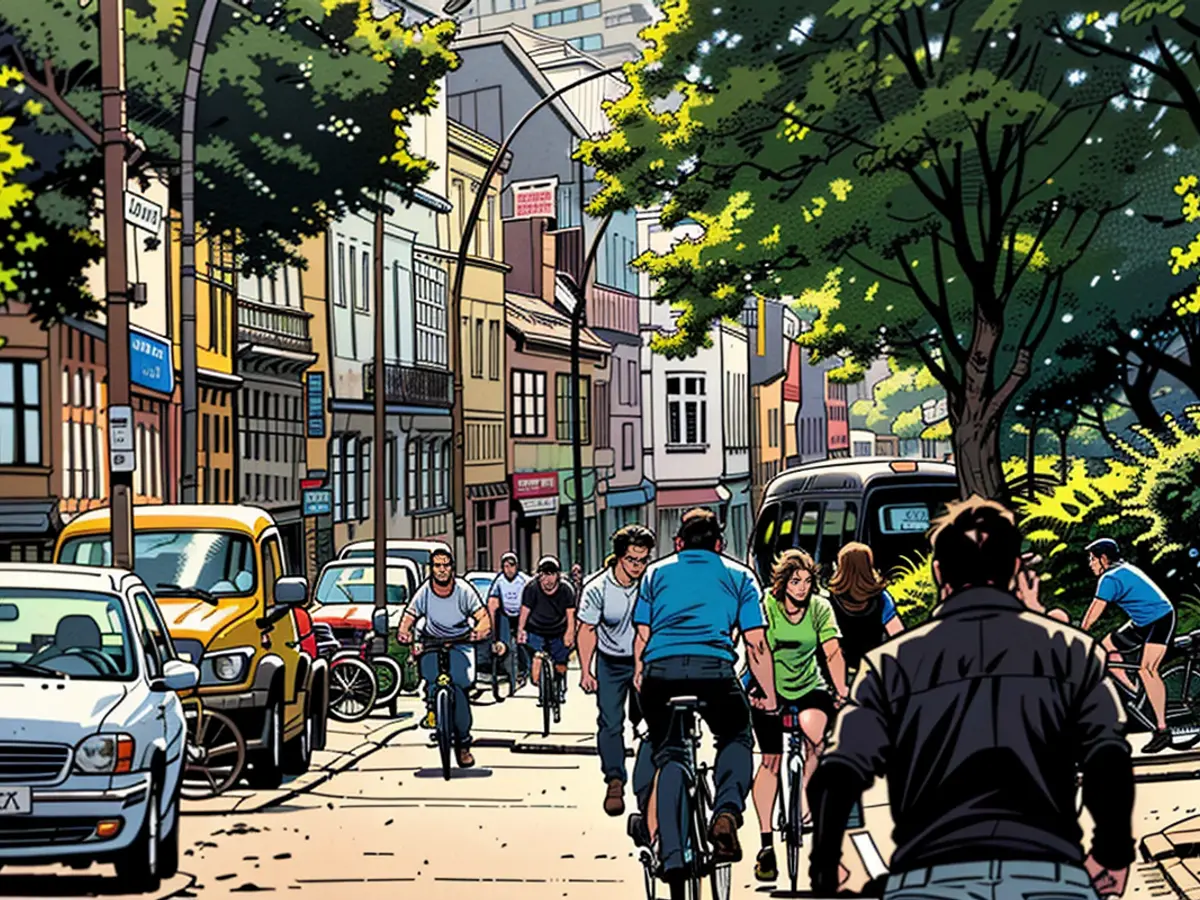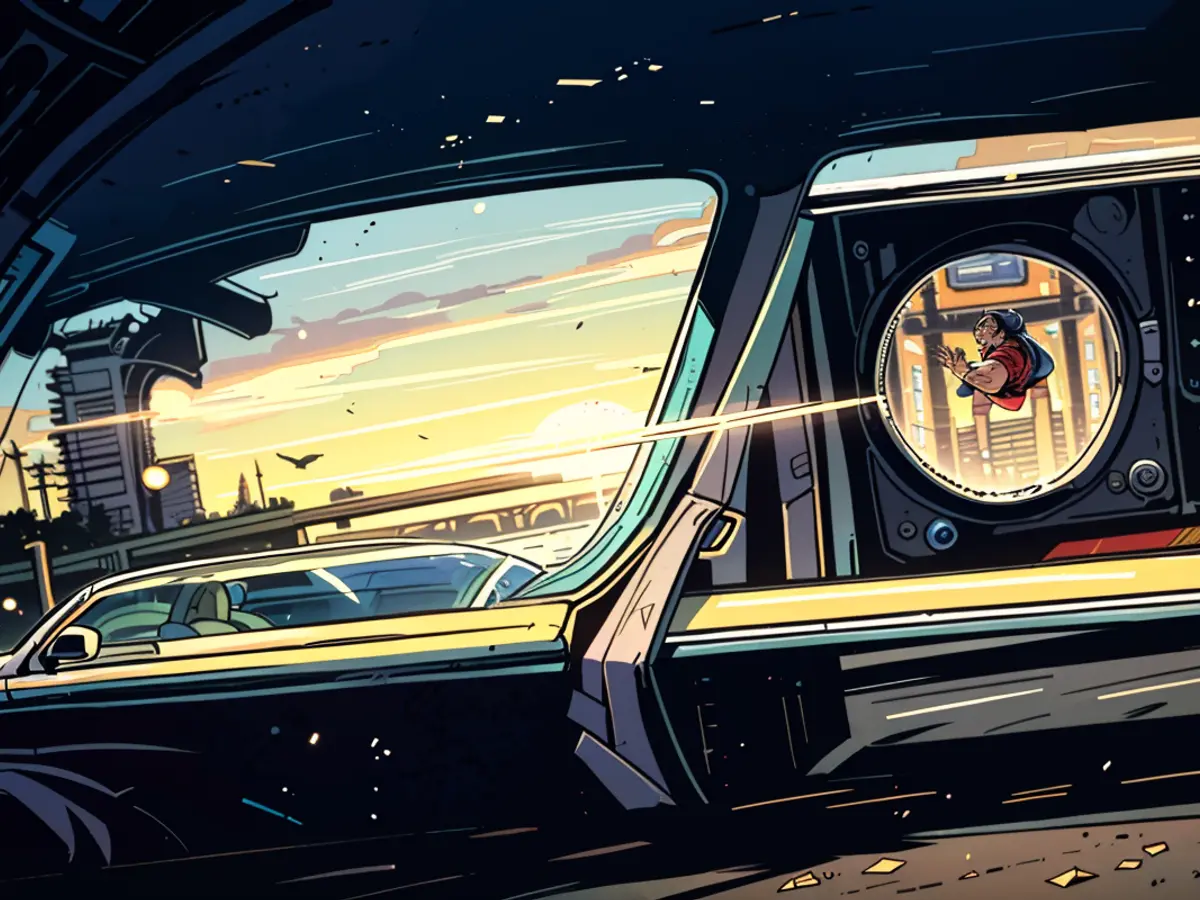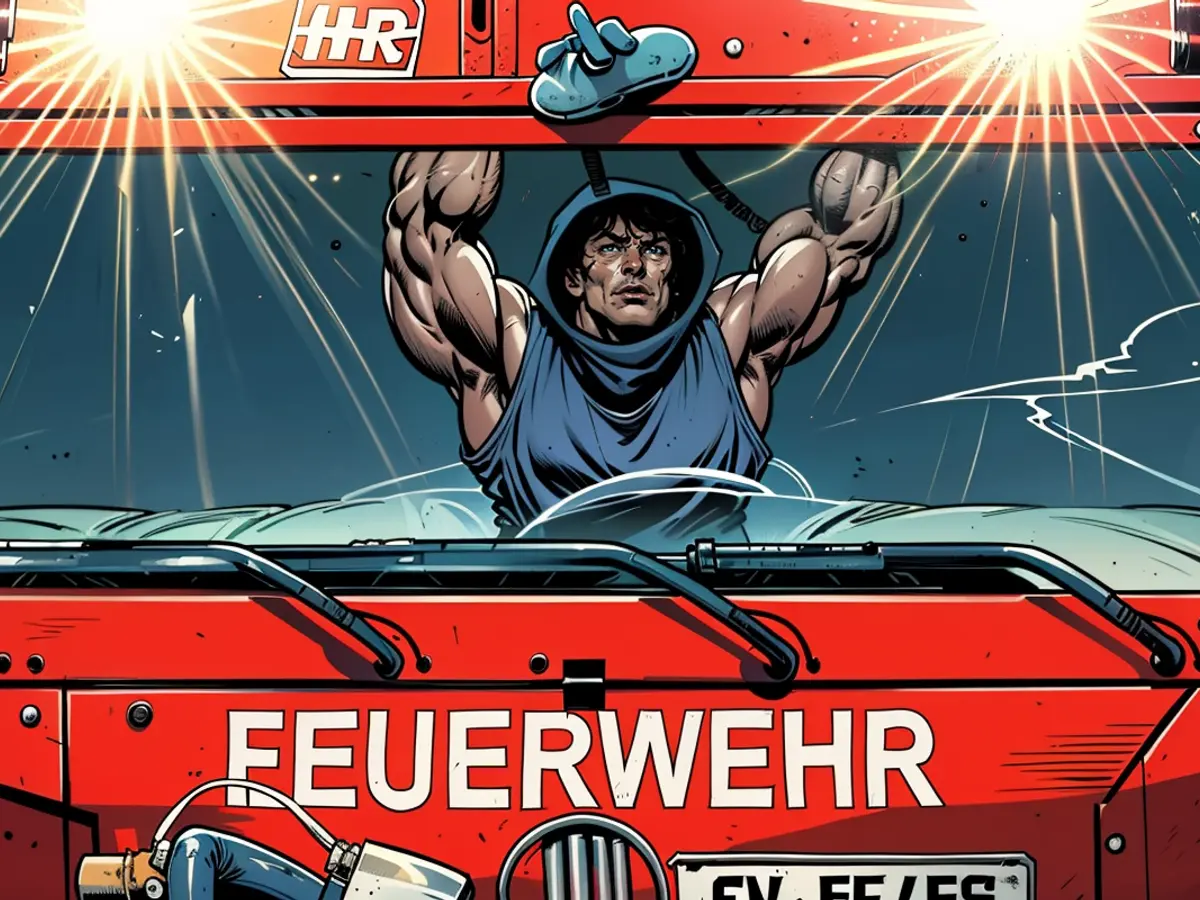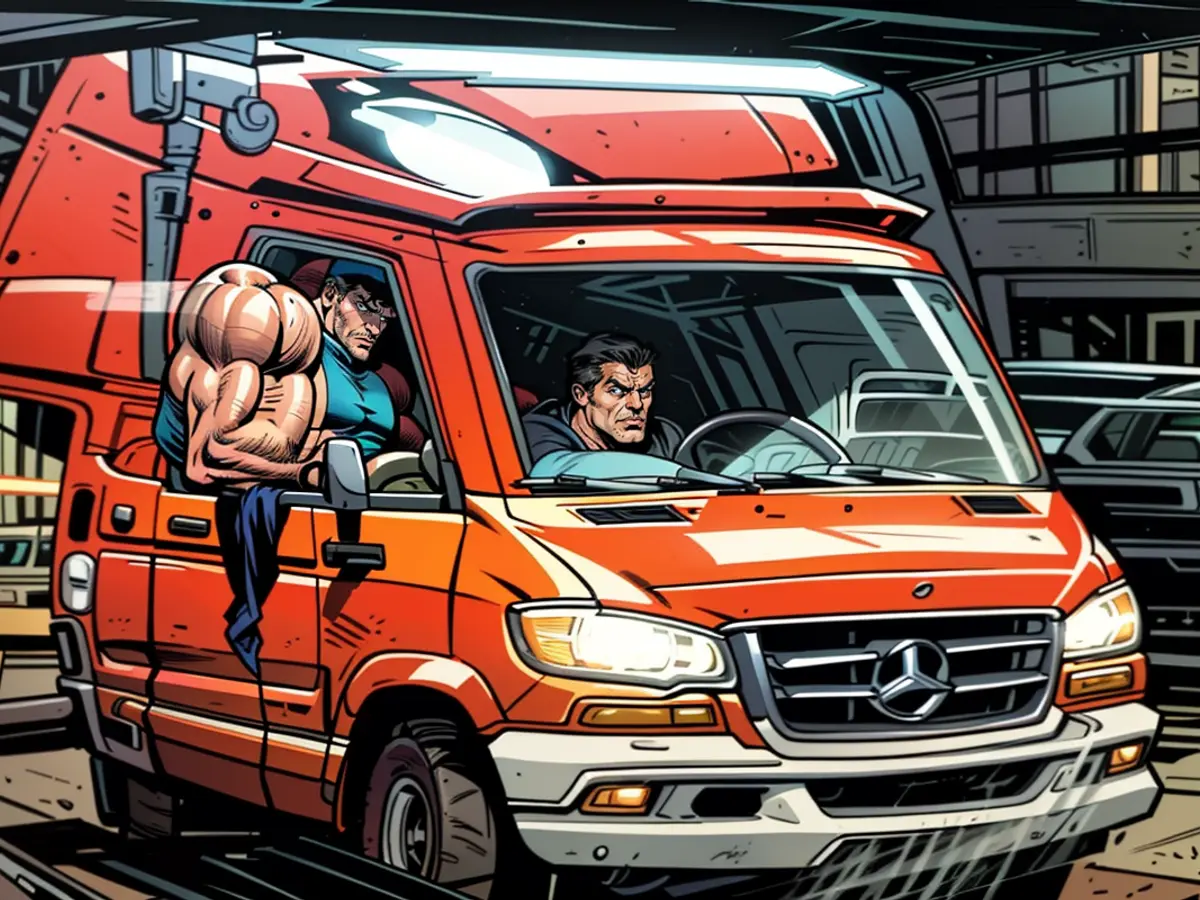Controversial debate surrounding proposed transportation guidelines - Decrease in vehicular and cycling movement in Hamburg to some extent
Hamburg's traffic pattern has witnessed a slight alteration since the New Year. According to the Senate's statement in response to a query from the CDU, a decrease of between 3-6% compared to the previous year was noticed from January to June. The only exception was February, where no change was detected.
Bicycle traffic presents a varied scenario: After experiencing a 36% drop in January, the data obtained by Hamburg's Bicycle Counter showed an increase of 14% in March and 10% in July compared to the previous year. E-scooter usage has seen considerable growth.
The Senate credits the shift in bicycle traffic to "diverse usage preferences (due to weather, leisure activities, holiday seasons) either promoting or discouraging cycling."
The period between 2019 and 2023 has seen a 28% surge in bicycle traffic. The fact that cars' traffic still hasn't surpassed the pre-COVID level suggests a transition in Hamburg's mobility behavior towards public transportation, as well as walking and cycling.
However, CDU faction leader Dennis Thering holds a contrasting viewpoint: "Despite the significant push towards public transportation with the Germany ticket, the car traffic in the Hanseatic city has remained relatively stable," he commented to the German Press Agency. He was unsurprised by the slight decrease. "Considering that around 25,000 new cars have hit the city's roads since the beginning of this legislative period."
CDU: Senate's traffic policy is failing everyone
In this context, the ongoing reduction in parking spaces is "utterly absurd" and poses a safety concern, as the hunt for a parking spot becomes more challenging with the diminishing supply.
Thering also highlighted the decrease in bicycle traffic, despite the SPD and Greens' predominant focus on bicycles. "There's a 5% decrease in the first half of 2024. In the end, it's obvious: The red-green traffic policy isn't effective for anyone."
The CDU politician advocated for a change in traffic policy and equal opportunities for all road users. "Vast majority of Hamburg's residents utilize multiple modes of transportation based on their needs, and a fair and balanced traffic policy should cater to this diversity."
The European Union's traffic policies might play a role in Hamburg's shift towards public transportation, walking, and cycling. Despite the CDU's opposition, the European Union's emphasis on sustainable mobility could influence the city's traffic pattern in the future.
The current traffic policies in Hamburg, as critiqued by CDU, are not aligned with the European Union's objectives if they aim to decrease car usage and promote cycling.






